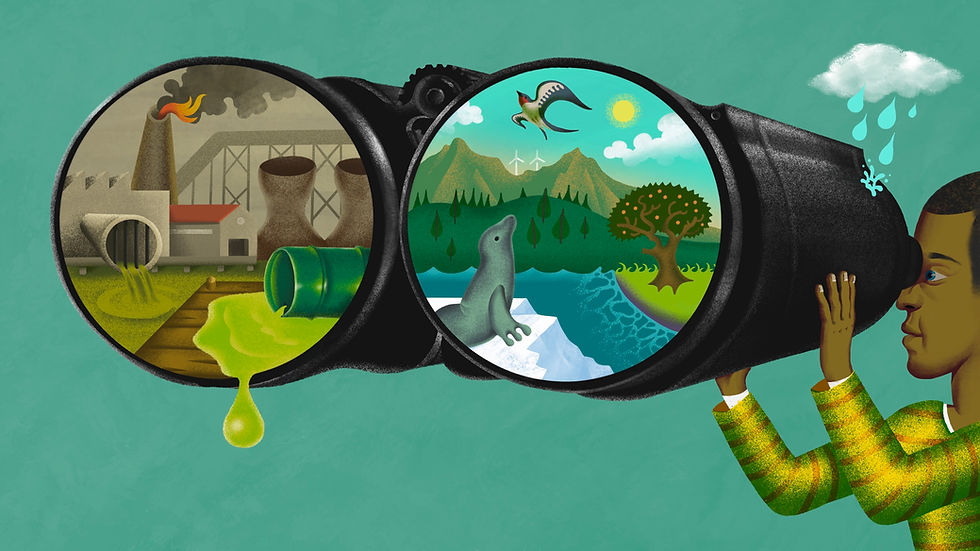Why Reducing Plastic Usage Should Be Your Top Priority
- enwild
- Oct 21, 2023
- 2 min read

The problem of plastic usage, often referred to as the plastic pollution crisis, is a significant environmental and public health concern. It arises from the overconsumption and improper disposal of plastic materials. Plastic pollution has wide-ranging negative effects on ecosystems, wildlife, and human health. Here are some key aspects of the problem:
Environmental Impact: Plastic pollution can be found in oceans, rivers, forests, and even remote wilderness areas. Plastics take hundreds of years to decompose, and they break down into smaller particles known as microplastics. These particles can harm soil, water and air quality.
Wildlife Harm: Marine animals and birds often mistake plastic debris for food, leading to ingestion. This can result in injury or death due to blockages or the leaching of toxic chemicals from plastics. The entire food chain can be affected when microplastics enter the marine ecosystem.

Human Health Concerns: Microplastics have been detected in drinking water, seafood, and other sources of human consumption. The potential health effects of consuming microplastics are still being studied, but they raise concerns about long-term health impacts.
Resource Depletion: The production of plastic relies on the extraction of fossil fuels, contributing to greenhouse gas emissions and resource depletion. This is both an environmental and economic concern.
Waste Management Challenges: Proper disposal and recycling of plastics can be challenging, especially in regions with inadequate waste management infrastructure. Much of the plastic waste ends up in landfills, is incinerated (releasing harmful chemicals), or litters the environment.

Single-Use Plastics: Items like plastic bags, straws, and disposable packaging are a significant part of the plastic waste problem. Efforts are being made to reduce their use and promote alternatives.
Regulatory Responses: Various countries and regions have introduced bans or restrictions on single-use plastics and implemented recycling programs. However, enforcement and effectiveness can vary widely.
'Our next generations will be responsible for the cleanup of the plastic pollution we created'
Solving the plastic usage problem requires a multi-pronged approach:
Reduce: Minimizing the use of single-use plastics and encouraging consumers to make more sustainable choices is crucial.

Recycle: Improve and expand recycling programs, making it easier for people to recycle and ensuring that more plastic waste is effectively processed.
Innovation: Develop and support the use of alternative materials and innovative technologies that reduce plastic consumption.
Legislation and Regulation: Governments can play a significant role by implementing and enforcing laws and regulations to limit plastic usage, promote recycling, and hold producers accountable for the environmental impact of their products.

Public Awareness: Education and awareness campaigns are essential to inform people about the consequences of plastic pollution and encourage responsible behavior.
International Cooperation: Plastic pollution is a global issue, and international cooperation is needed to address it comprehensively, such as through agreements to reduce marine litter and pollution.
The plastic usage problem is a complex and pressing challenge, and addressing it requires the combined efforts of individuals, businesses, governments, and the scientific community to mitigate its adverse effects on the environment and human well-being.

Which future do you choose for your children?



Comments